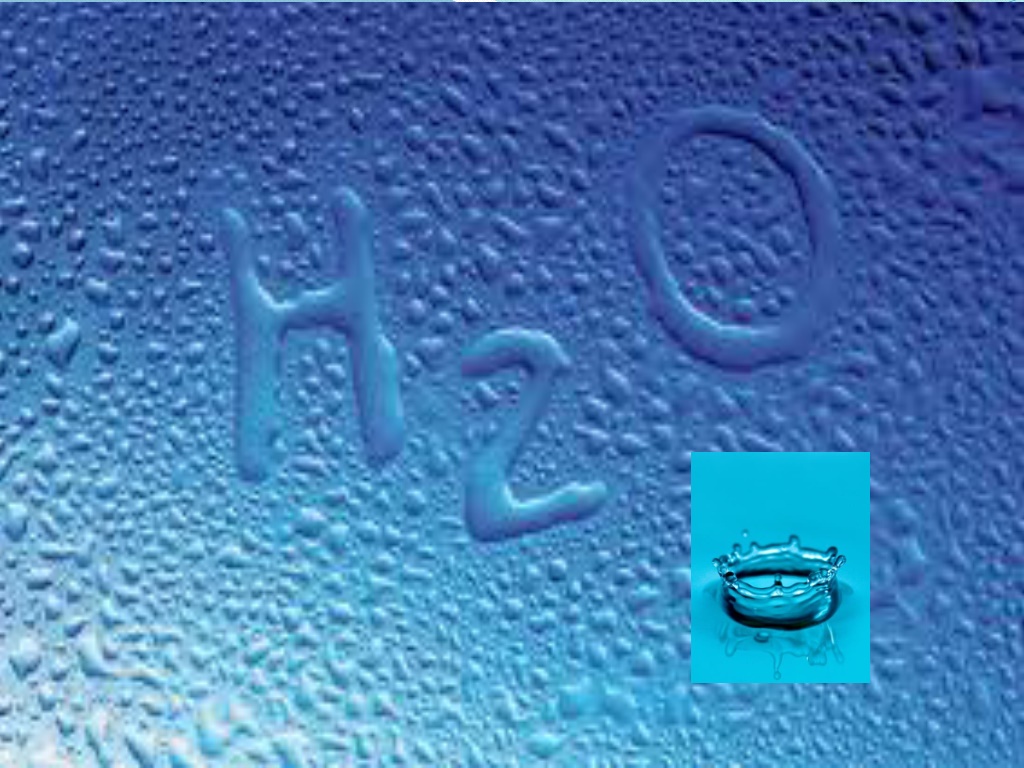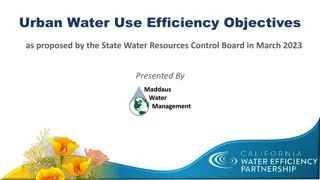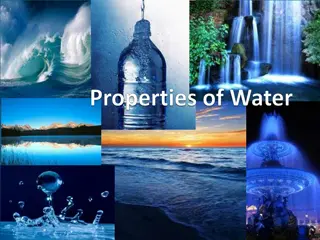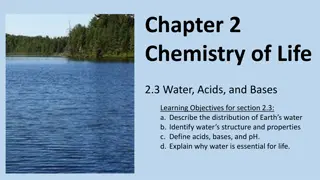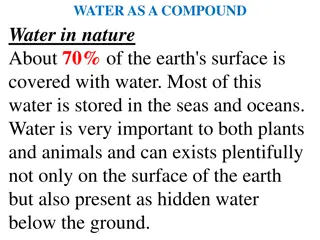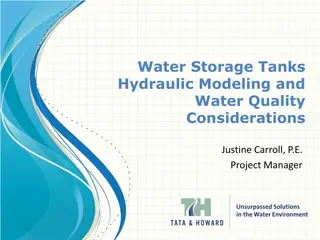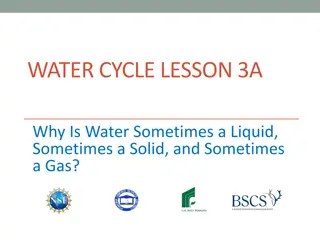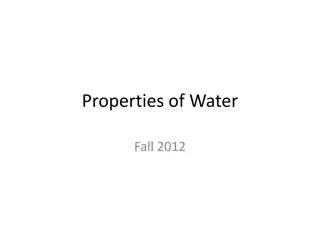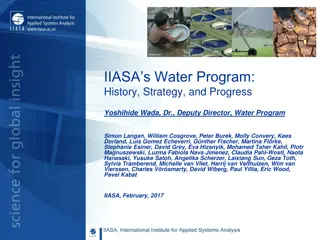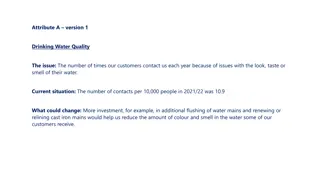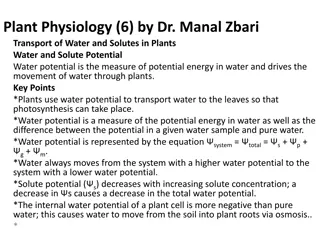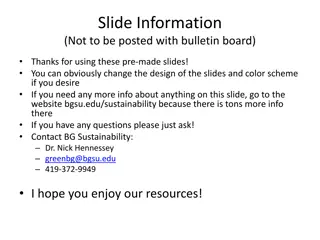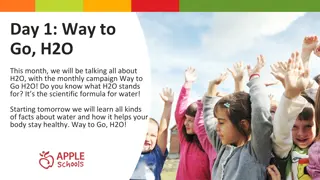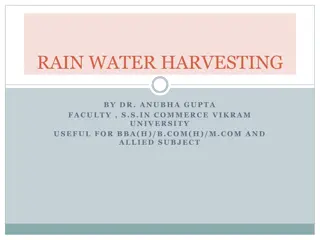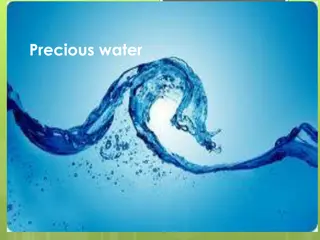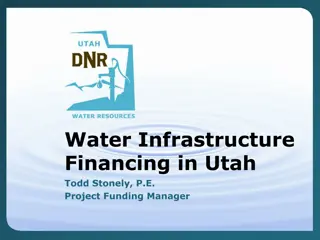Fascinating Facts About Water and Its Properties
Explore interesting facts about water, including its crucial role for life on Earth, the distribution of water on our planet, and the properties of the water molecule. Learn about the importance of water for human health, the chemical reactions that form water, and the different states of water. Discover how little of the Earth's water is actually usable for humans and why water is essential for our survival.
Download Presentation

Please find below an Image/Link to download the presentation.
The content on the website is provided AS IS for your information and personal use only. It may not be sold, licensed, or shared on other websites without obtaining consent from the author. Download presentation by click this link. If you encounter any issues during the download, it is possible that the publisher has removed the file from their server.
E N D
Presentation Transcript
C:\Users\gordonk\AppData\Local\Microsoft\Windows\Temporary Internet Files\Content.IE5\IZXD6S0E\MP900444791[1].jpg
About 70% of the earths surface is covered with water.
97% of the water on the earth is salt water. 2 % of the water on earth is glacier ice at the North and South poles. This is fresh water; but is not useable. Less than 1% of all water on earth is usable fresh water that we can actually use. C:\Users\gordonk\AppData\Local\Microsoft\Windows\Temporary Internet Files\Content.IE5\JN3WO2T4\MC900437640[1].png
Water Facts Without water , the earth would look like the moon . All living things need water to live. Next to the air we breathe, water is our most important need. Humans: 70% water * 83% of our blood * 70 % of our brain * transports wastes * lubricates joints * keeps our temp. stable * important in all of our cells
Facts: Human beings can live several weeks without food, but only a few days without water. We must drink six to eight glasses of water each day. We also get water from the foods that we eat. 80% water
Properties of Water The Water Molecule what you need to know. 2 hydrogen atoms and 1 oxygen atom Hydrogen colorless, odorless, tasteless gas; but highly explosive Oxygen colorless, odorless, tasteless gas; but combustible
Properties: Chemical Reaction between Hydrogen and Oxygen to form: H2O Water This is a very explosive reaction To form a colorless, odorless, tasteless LIQUID That we need for LIFE!! C:\Users\gordonk\AppData\Local\Microsoft\Windows\Temporary Internet Files\Content.IE5\GI5T191O\MP900444790[1].jpg
Properties: Water comes in three states Solid Liquid and Gas Solid: 0 degrees Celcius; particles more spread apart when freezing; less dense than liquid water (ice floats). This is important in the winter so that ice doesn t sink. The lakes would completely freeze; from the bottom up.
Properties: Liquids: Most familiar with liquid water. 1 degree 99 degrees Celcius; liquid water molecules are free to move; they stay fairly close together, however; move as a unit (stick together). Gas: Water vapor (water in the gas state); molecules are moving the fastest; over 100 degrees Celcius; always present in the air around us; creates precipitation.
Properties: Water is a polar molecule: (Bent molecule) Has a slight negative end (-) oxygen end; and a slight positive end (+) hydrogen end. Hydrogen Bonding: (the stickiness of water) When the + end of one water molecule is attracted to the end of another water molecule.
Properties: Examples of hydrogen bonding: Meniscus - Waterbeading up car windows or other surfaces
Properties: Capillary effect: hydrogen bonding in water
Properties: Polarity of a water molecule . The reason why water is the UNIVERSAL SOLVENT . It can dissolve almost anything.
Properties: BRAINPOP video: Water Water Treatment: Why important? We have to rely on the available fresh water supply (less than 1%) and the water cycle to renew that water for us. BRAINPOP video: Water Supply
Water Treatment Process BRAINPOP video: Water Pollution
C:\Users\gordonk\AppData\Local\Microsoft\Windows\Temporary Internet Files\Content.IE5\SN3TIGUT\MP900444787[1].jpg H2O You re there when I need you and I need you everyday. I bathe in your beauty and you wash my cares away. When I take you to my lips it s then I really know, I could never live without you H2O. H2O I could never live without you. I want to know everything about you. You re so cool and clear and wet, You re in my tears and in my sweat. You re in my blood and so I love you H2O.
There are so many names I call you aside from H2O. When you re in the solid state I call you ice or snow. I like to call you water when you are liquid in a cup. You boil and turn to steam when I heat you up. The H in you is Hydrogen a gas that can explode. It made the Hindenburg go POP, at least that s what I m told. The O in you is oxygen, a gas that we all know. Chemically combined it s you H2O. H2O I could never live without you. I want to know everything about you. You re so cool and clear and wet, You re in my tears and in my sweat. You re in my blood and so I love you H2O.
You boil at 100, thats Celsius degrees. With the temperature at zero, you soon begin to freeze. These values are peculiar, really much too high. But the hydrogen bonding in you helps explain why. You re denser as a liquid than in the solid state. So ice floats on water, and this is really great. Imagine how a lake would freeze if this wasn t true. What would all the little frozen fishies do? H2O I could never live without you. I want to know everything about you. You re so cool and clear and wet, You re in my tears and in my sweat. You re in my blood and so I love you H2O.
Tap Water Tour Notes: What is in tap water? Why is it in there? Chorine: Chlorine is added to drinking water to kill ___bacteria____ and control algae. Chlorine is a ___ disinfectant___. Swimming pools have ___2 ____ times as much chlorine as drinking water. Bleach has 15,00 time more than drinking water. Too much chlorine can: irritate skin, burn eyes, make water taste funny, kill plants and animals.
Iron: Iron is found naturally in the water from underground iron sources. Too much iron can ____stain clothes_____. Iron reacts with oxygen to cause rust. (iron pipes can be another source of iron) The symbol for iron is ___Fe____.
Copper: Acid water dissolves copper from pipes. Creates blue-green stains and scale on pipes. Tastes bitter; tastes like metal. Tap Water Tour Test: * Orange = ___none___ * Reddish brown = ___trace amount___ * Blue = ___positive__ test for copper.
Hardness: Hard water contains calcium and magnesium (minerals). Causes ___spots___ on glasses. Causes ___scale___ on showerheads and faucets. Minerals in hard water mix with soap and dirt to cause ___bathtub___ rings. Tap Water Test: * Blue = __soft__ * Pink = __hard__
Ph Scale: Distilled water has been purified so that there are no minerals in it. pH = 7. (PURE Water = H2O Salt water contains salt and many other minerals like calcium, iron, potassium, and copper. Acid rain may contain: carbonic acid, sulfuric acid or nitric acid. Acid rain can come from chemical pollution from factories, power plants or even natural occurrences like lightning, volcanoes, forest fires and even breathing puts CO2 in the air.
pH scale: Water with a low or high pH can damage pipes. City water is adjusted to a pH of about 7. A pH or 5 or less will react with metal pipes, eat holes in pipes, damage faucets and cause leaks. Corrosive means to eat away or decay. Water with a pH above 8 usually has many minerals like calcium and magnesium, which can clog pipes, leave bathtub rings and make clothes look dingy. A crusty scale can build up on sinks and fixtures. Limestone is a basic rock (above 7 pH).
Tablet Code for pH: Red 4 Orange 5 Yellow 6 Apple Green 7 Blue-green 8 Blue 9 Purple 10
